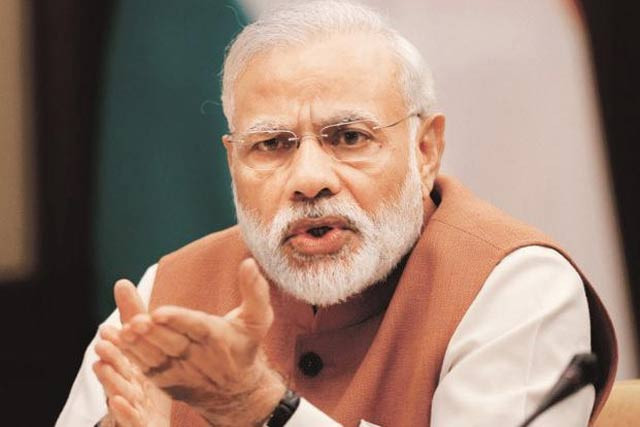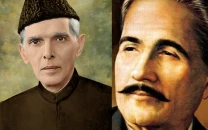Pakistan has itself to blame for WB decision
Guarantor has no mandate to ask Delhi, Islamabad to resolve row bilaterally: experts

Guarantor has no mandate to ask Delhi, Islamabad to resolve row bilaterally: experts. PHOTO: REUTERS
On December 13, the World Bank announced a pause in the separate processes initiated by India and Pakistan under the treaty to allow the two countries to consider alternative ways to resolve their disagreements. The current processes under the treaty concern the 330-megawatt Kishanganga and 850-megawatt Ratle hydroelectric power projects being built by India on the Kishanganga and Chenab rivers.
India ready to resolve differences over Indus Waters Treaty with Pakistan bilaterally
Officials and experts say the World Bank has no mandate to ask Islamabad and
New Delhi to resolve their water-related issue bilaterally. At the same time, they say Pakistan has itself to blame for the dilemma it faces today.
“The World Bank’s role is limited to facilitating the appointment of chairman court of arbitration,” Kamal Majidullah, the prime minister’s former special assistant on water resources, told The Express Tribune.
However, Majidullah said it was a wrong decision by the incumbent government to approach the World Bank. “Pakistan should have knocked at the door of International Court of Arbitration,” he added. “India preferred the World Bank because it had won a favourbale decision from a neutral expert nominated by the bank on the Baglihar hydroelectric power project built by India on the Chenab river.”
He said the United Nations secretary general and the World Bank had a mandate to appoint a chairman court of arbitration. “In the case of Kishanganga, the UN secretary general had already appointed a chairman court of arbitration,” he added.
Officials say the non-serious attitude of the Pakistan government has led to the situation where Pakistan has again been forced to hold talks with India even though Premier Narendra Modi has repeatedly threatened to run Pakistan dry.
They cite the change in Pakistan’s stance at the World Bank as a reason for the IWT guarantor to give in to the Indian pressure. Premier Nawaz Sharif’s predecessor had approved a summary in 2009 to petition the World Bank to act as a neutral expert over the design of Kishanganga dam.
World Bank declares pause to protect Indus Waters Treaty
“However, the incumbent government withdrew that plea and instead sought the World Bank help to set up a court of arbitration on Kishanganga’s design,” one official told The Express Tribune. India, in the meanwhile, requested the World Bank to act as a neutral expert rather than establishing court. Interestingly, the World Bank had granted Pakistan’s request of establishing a court of arbitration but the case was not pursued.
“This was the reason that the World Bank came under Indian pressure,” another official said. “When Pakistan’s request for setting up a court of arbitration had been accepted by the World Bank, there was no reason to hear India’s plea to act as neutral expert.”
Pakistan’s former Indus Waters Commissioner Jamaat Ali Shah agrees that the slow response from the Pakistan government was the main reason for the World Bank buckling under India’s pressure. “The World Bank has asked the two countries to find out a solution, but a bilateral arrangement might not be possible given the hostility between the two neighbours,” Shah added.
The Indus waters commissioner is mandated to pursue cases involving water issues with India or any other country. But officials say it is regrettable that Pakistan doesn’t have a permanent Indus waters commissioner.
Asif Baig, who is currently working as Indus waters commissioner, is an employee of the consultant firm NESPAK and has been holding the position since 2012. “In such a situation, how any country can safeguard its water interests,” a third official told The Express Tribune.
Ahmer Bilal Soofi, president of the Research Society of International Law, says the World Bank should decide the case instead of asking the two states to resolve it bilaterally.
“It will be difficult for India and Pakistan to find a mutually acceptable solution,” he told The Express Tribune. “If India uses water as weapon, then Pakistan approach international forums like the UN secretary general outside the mechanism in the IWT.”
Experts and officials say India would press the World Bank to appoint a neutral expert rather than going to the international court. Appointment of a neutral expert by the World Bank may entail the same consequences that Pakistan had faced in the case of Baglihar dam, they believe. Pakistan should go to the International Court of Arbitration rather than relying on the World Bank.
Published in The Express Tribune, December 17th, 2016.



















COMMENTS
Comments are moderated and generally will be posted if they are on-topic and not abusive.
For more information, please see our Comments FAQ